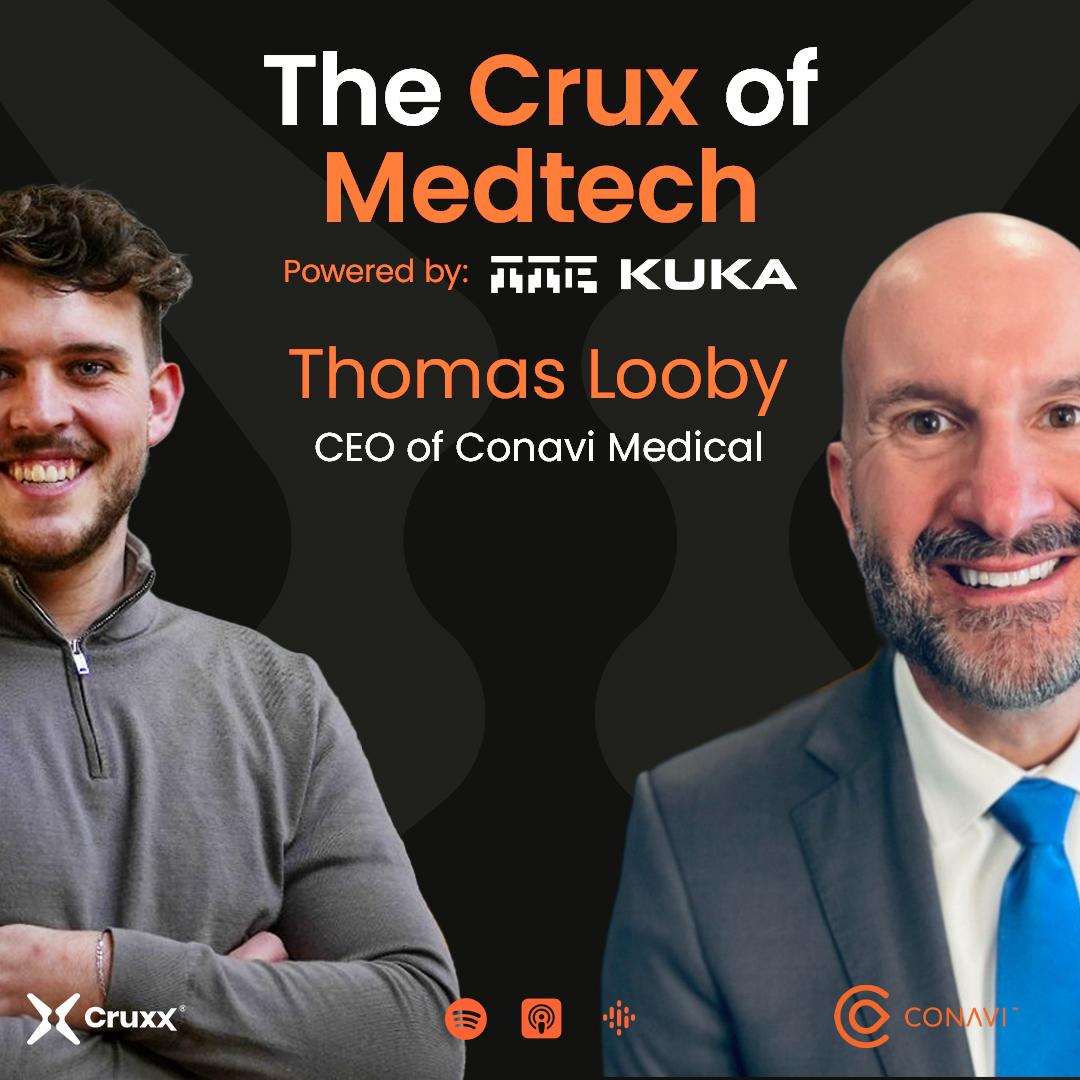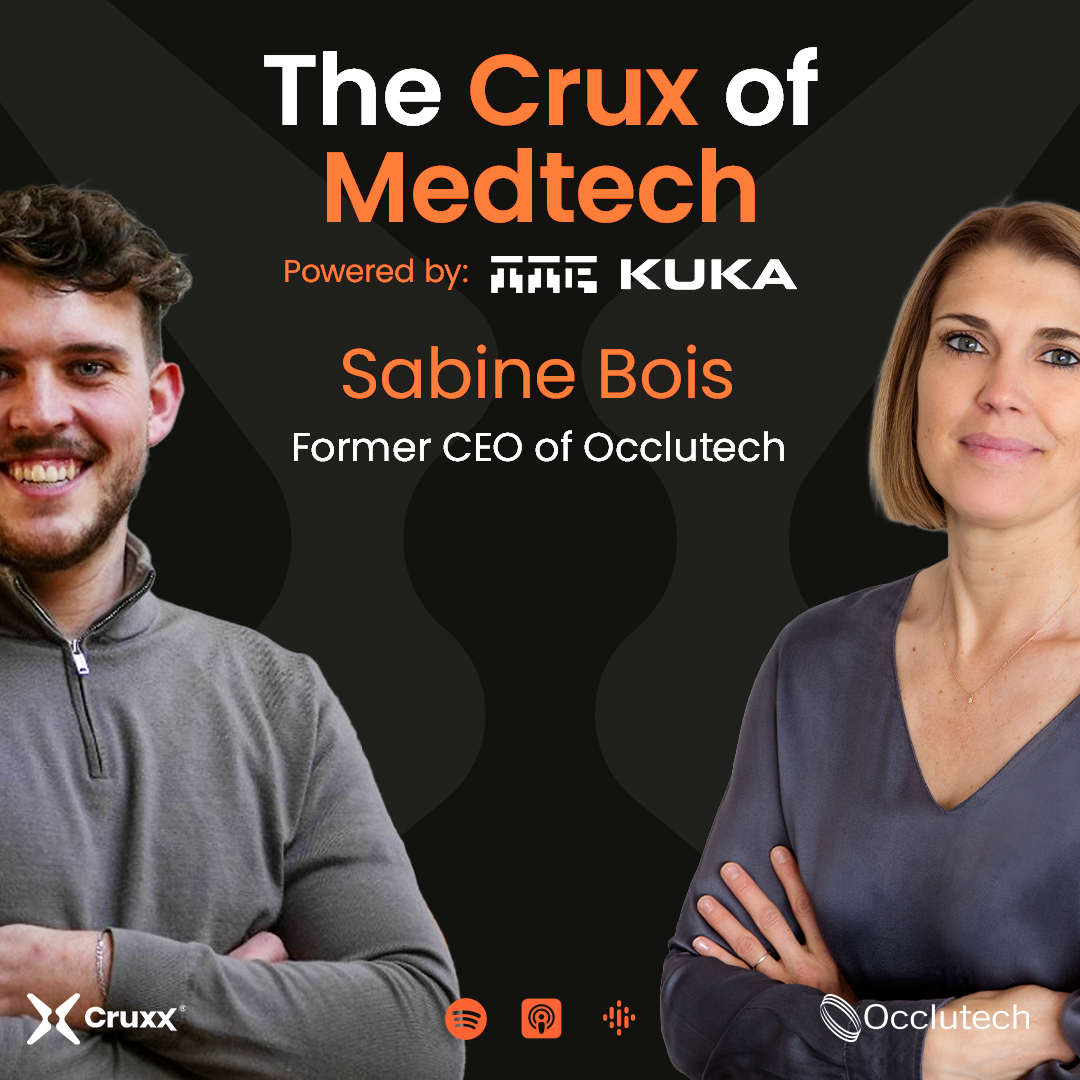On Episode 8 of The Surgibots Podcast I had the pleasure of sitting down with Lucien Blondel, the Co-Founder and CTO of Quantum Surgical. Lucien has built an impressive personal brand, making him one of the most popular voices in the surgical robotics sector. On the podcast he gave us an inside look at his personal branding process, as well as the inside scoop on his professional history, business plans and the challenges he’s facing at Quantum:
How did you get into this space?
I started in engineering school, but I was not very attracted to heavy industries such as automotive or anything in automotive. I picked a nine month internship in a research lab that was developing a surgical robot for laparoscopy. At the time, it was aiming to compete with the computer motion system and Intuitive Surgical’s da Vinci. It was a very big research project. That's where I discovered the medical and surgical robotics fields, which were in the early stages at the time. I researched what was happening in this field and worked on this on this project. After that I applied for a position in a startup that was called MedTech in the south of France, and that's where I started my journey in surgical robotics.
Why did you start building a brand and sharing your knowledge with the community?
That's something I've been doing since the beginning, it’s just scaled into another dimension with social media. I started on LinkedIn in 2011, but I never had a plan for it. When this all started, you put your experience, background etc on your profile and every now and then you connected with people. During the COVID I figured that I could share what I already shared internally to more people so that it could benefit the whole community and help surgical robotics technology as a whole to develop faster. I could also raise awareness on what we were doing to commercialise in the coming years. There are a lot of teams who are doing great things and putting a lot of effort into building those products. They deserve some awareness and recognition for that.
Has it created any opportunities for you at all?
The side effect of sharing content is that a lot of people will ask questions, for advice or offer opportunities. Everybody's saying that when you network properly, opportunities come to you. It's more about selecting which opportunities you want to pursue at that point. So yes, I've been contacted about a lot of opportunities, but I’ve remained focused on building the Quantum Surgical startup.
Should more people be doing Personal Branding in the sector?
It's not easy. It requires some exposure and effort to bring value to the community. It is not something that you just do in five minutes. You have to be thoughtful of what you do. You have to have a North Star that drives your content strategy if you want to be consistent and relevant. Personal branding is an investment, but obviously that investment is paying off. I would recommend that everybody does some level of sharing and networking, because especially since COVID we've become a more global world. Opportunities are popping up to do remote work for companies in the US, China or Europe. To get those opportunities, people need to know who you are, what you do, and your value. Personal branding is a great way to demonstrate those things.
What advice would you give to anyone who wants to start building their following and their personal brand?
Just start. Do not over complicate things. You can build a long term strategy, you can change, you can iterate, you can adapt, but you need to have a clear purpose. Why are you doing it? It's gonna cost you effort. If it's just to get something in return, that will not work. You need to have something that really drives you to create content online.
Once you are clear on what your North Star is, you just have to take the first step. You’ll learn along the way and adjust and connect to people. Try something and connect to people or follow people who do the same thing. The good thing about social media is that there are already a lot of people doing stuff on there. They’ll have already laid out the playbook for how to do it, so sometimes it's just a matter of finding inspiration and finding your own way.
To learn more about Lucien’s background and professional experience, tune into The Surgibots Podcast here.





